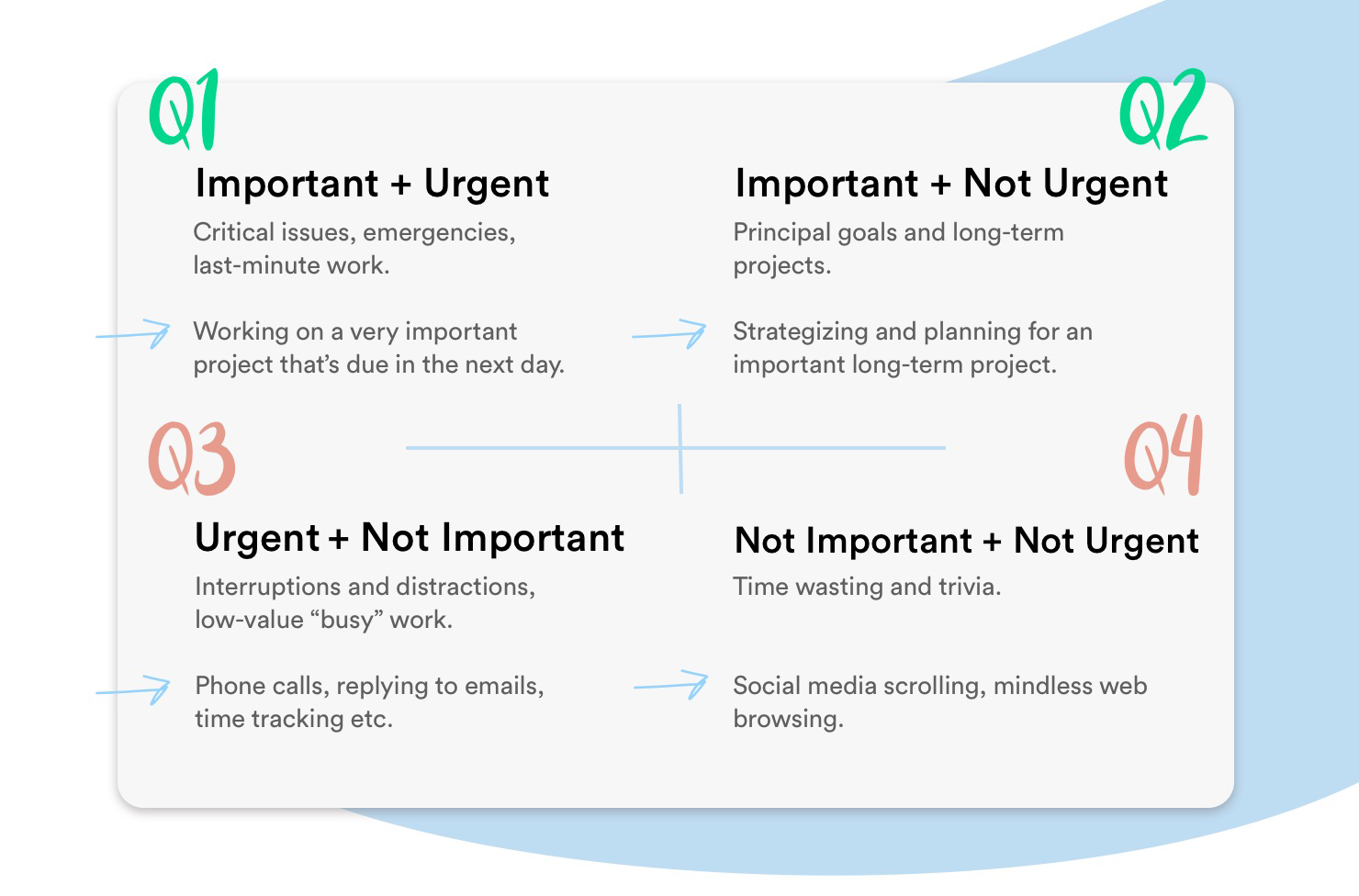
Moonpreneur
Once upon a time, a wise old man lived in a small village. One day, a young boy approached him and asked, “How can I make the most of my time and become productive?” The old man thought for a moment and then told him the following tale:
“There was a man named Jack who had a habit of wasting his time on idle pursuits. One day, an angel appeared to him and gave him a bag of sand, saying,
‘Every time you waste time, a grain of sand will slip out of the bag.’ Jack was shocked to see how quickly the sand was running out. He soon realized that time was his most precious possession and began to use it wisely.“
As parents, we all want the best for our children and want them to be successful in life. A key factor in achieving this success is productivity. By fostering a productive mindset and encouraging healthy habits in our children, we can set them up for success in their future endeavors.
Recommended Reading: How To Be Productive At School?

Image: United States Department of Labor report says that productivity increases have enabled the U.S. business sector to produce nine times more goods and services since 1947 with a relatively small increase in hours worked.
This blog will explore seven effective ways to make your child productive.
1) Encourage Regular Exercise and Healthy Habits
Physical activity directly impacts a child’s mental and emotional well-being. Exercise helps increase energy levels, improves mood, and boosts productivity. Encourage your child to engage in physical activities such as playing sports, going for walks or runs, or doing yoga.
Additionally, a healthy diet can also play a role in increasing productivity. Teach your child about the benefits of eating a balanced diet and encourage them to make healthy food choices.
2) Set Achievable Goals and Responsibilities
Setting goals and giving your child responsibilities helps them to understand the importance of time management and prioritization. This, in turn, helps boost productivity. Encourage your child to set small, achievable goals and reward them when they achieve their goals.
Assign age-appropriate tasks and responsibilities such as chores, studying, or completing projects, and hold them accountable.
3) Teach Time Management and Prioritization
Teaching your child the importance of time management is crucial in helping them be productive. Teach them how to prioritize tasks and make a schedule for completing them.
Recommended Reading: 5 Tips for Kids to Master Time Management

Encourage them to break down large tasks into smaller, manageable parts and to start working on those tasks as soon as possible to avoid procrastination.
4) Foster Independence and Decision-Making Skills
Allowing your child to make decisions and encouraging independence can help build confidence and increase overall productivity. Provide them with opportunities to make choices and decisions and offer guidance when needed. As they grow older, give them more responsibility and allow them to take the lead in completing tasks and projects.
5) Promote Creativity and Allow for Downtime
Encourage your child to engage in creative activities such as drawing, painting, or playing an instrument. These activities can help stimulate their minds and refresh their energy levels, making them more productive in other areas of their lives. While it is important to encourage productivity, it is also essential to allow for downtime.
6) Provide a Structured and Organized Environment
A structured and organized environment can help children feel more in control, and less stressed, leading to increased productivity. Encourage your child to keep their space tidy and organized and provide them with the tools they need to be successful, such as a planner or a set schedule.
7) Offer Positive Reinforcement and Support
Positive reinforcement and support are crucial in helping children feel motivated and confident. Celebrate their achievements, no matter how small, and offer encouragement and support when they face challenges. When children feel supported and encouraged, they are more likely to be productive and motivated to succeed.
The old man then said there are several activities that can help kids stay productive, just like Jack did. Here is what he suggested.
- Cooking and baking: Teach your kids basic kitchen skills, such as measuring and mixing ingredients, following recipes, and using kitchen tools. This can be an excellent opportunity for them to learn about nutrition, science, and math.
- Arts and crafts: Encourage your kids to explore their creative side with projects such as painting, drawing, sculpting, or collaging. You can also introduce them to new materials, such as beads, or clay.
- Gardening: Plant a small garden or window box together and let your kids take care of it. They can learn about plants, insects, and soil, breathe fresh air, and exercise simultaneously.
- Games and puzzles: From board games to jigsaw puzzles, games, and puzzles can be a fun way for kids to practice problem-solving, critical thinking, and teamwork.
- Science experiments: Try simple experiments at home, such as creating a lava lamp, making slime, or building a balloon rocket. This can be a great way to introduce kids to chemistry, physics, and engineering concepts.
- Reading and writing: Encourage your kids to read books, write stories, and make their comics. You can also take turns reading to each other or writing letters to friends and family.
- Outdoor adventures: Take a nature walk, ride a bike, or picnic in a nearby park. You can also encourage your kids to explore, observe, and take photos of the world around them.
- Music and dance: Teach your kids to play an instrument or encourage them to dance to their favorite songs. You can also sing together or make up your songs.
- Physical activities: Play catch, swim or try a new sport together. You can also encourage your kids to do yoga, tai chi, or other forms of physical exercise.
Like Jack, your kids can learn the value of time and become productive by engaging in fun and educational activities. Whether they’re cooking, crafting, or exploring, these activities will help them develop new skills, discover new interests, and make the most of their time at home.
Moonpreneur is on a mission to disrupt traditional education and future-proof the next generation with holistic learning solutions. Its Innovator Program is building tomorrow’s workforce by training students in AI/ML, Robotics, Coding, IoT, and Apps, enabling entrepreneurship through experiential learning.



























Should children be allowed to create their own goals?
It’s definitely a good idea to involve kids in setting goals. It helps them feel more responsible and motivated. Make sure the goals are realistic and in line with what they’re interested in.
How can parents best assist their children in studying remotely?
Engage learners, stay in touch with teachers on a regular basis, and create a comfortable and well-structured environment for virtual classrooms. Be proactive about resolving issues.
Are there any applications or particular tools that help increase youngsters’ productivity?
Yes, there are lots of apps and tools out there that can help you learn, but it’s important to be careful and pick the right ones for your age group.
What part do pauses play in sustaining productivity?
It’s important to take short breaks to clear your head and get your brain back on track. Make sure to do things like stretch, read, or do some creative work during your breaks for maximum productivity.